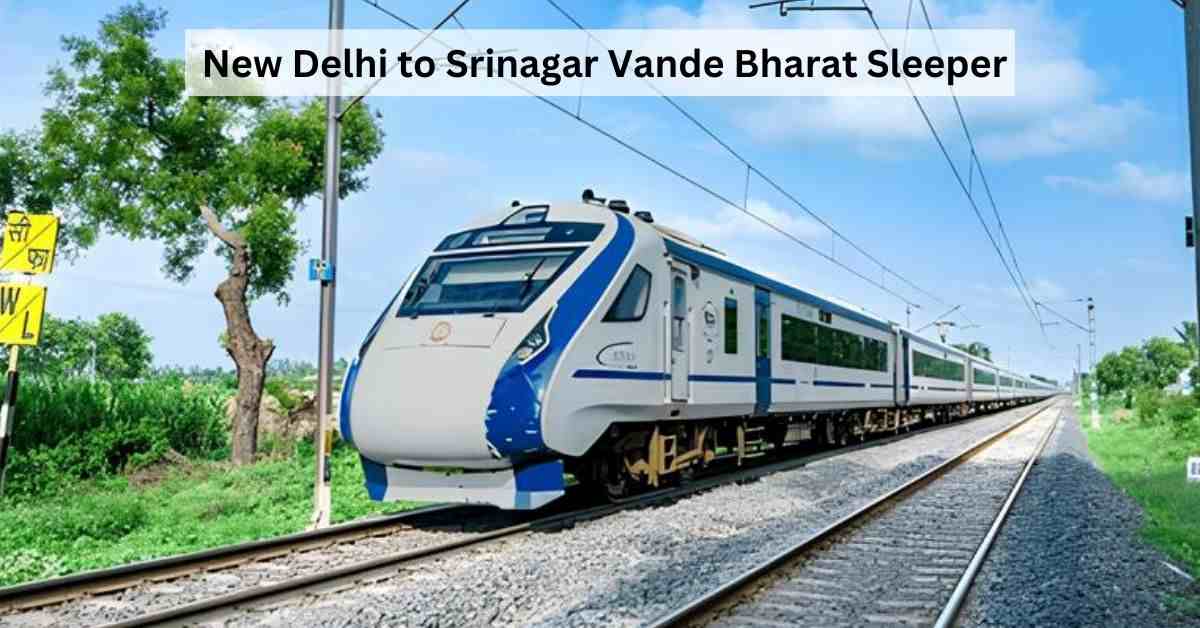The long-cherished dream of a direct Delhi-Srinagar train remains unrealized, despite the monumental completion of the Katra-Banihal rail track and the launch of train services connecting Kashmir with the rest of India. While this marks a historic milestone in enhancing connectivity, the absence of a direct train between Delhi and Srinagar has left many disappointed, particularly businesses, the horticulture sector, and students seeking a cost-effective alternative to air travel.
Challenges with the Current Rail Setup
The decision to operate Vande Bharat Express trains exclusively on the Katra-Srinagar route fails to address the larger logistical and economic demands of the region. The current arrangement, which requires passengers and goods to change trains at Katra, is cumbersome and limits the full potential of this connectivity upgrade.
Key issues include:
- Economic bottlenecks: The lack of direct services impacts industries that rely on timely and efficient transport, such as horticulture and tourism.
- Horticultural losses: Perishable goods like apples face delays due to road transport dependency, compounded by frequent disruptions on the Jammu-Srinagar highway.
- Higher costs for travelers and traders, as they are forced to rely on roadways or expensive air travel for direct access to Delhi.
The Need for a Direct Train Service
A direct train connecting Delhi and Srinagar would have a transformative impact, benefiting the region’s economy in multiple ways:
1. Boost to the Horticulture Sector
Kashmir’s horticulture industry supports millions of livelihoods but struggles with unreliable transport. A direct passenger and cargo train would:
- Ensure faster and safer delivery of produce to markets.
- Reduce transportation costs, making Kashmiri goods more competitive nationally and internationally.
- Attract investments in cold storage, food processing, and logistics hubs, promoting regional development.
2. Enhanced Tourism Opportunities
Tourism, a key pillar of Kashmir’s economy, would thrive with direct train connectivity:
- More tourists would visit Kashmir due to affordable travel options.
- Improved rail access would create job opportunities in tourism and allied sectors.
3. Improved Logistics for Other Industries
Dedicated cargo trains could facilitate the efficient transport of:
- Construction materials.
- Consumer goods.
- Essential commodities.
This would lower costs and foster economic integration between Kashmir and the rest of India.
Economic Integration for Ladakh and Jammu
A direct train would also serve as a lifeline for Ladakh, which relies heavily on supplies routed through Kashmir. Lower transport costs and improved logistics could:
- Enhance trade opportunities for both regions.
- Provide a reliable supply chain for essential goods and materials.
The Way Forward
To unlock the full potential of Kashmir’s economy and address the region’s logistical challenges, the government must:
- Introduce a direct Vande Bharat Express train between Delhi and Srinagar.
- Launch dedicated goods trains to support the horticulture and industrial sectors.
- Invest in related infrastructure, such as cold storage and logistics hubs.
This move would not only strengthen Kashmir’s economic ties with the rest of India but also pave the way for long-term growth, stability, and prosperity. A direct Delhi-Srinagar train is not just a necessity—it is an economic imperative for the region’s future.








